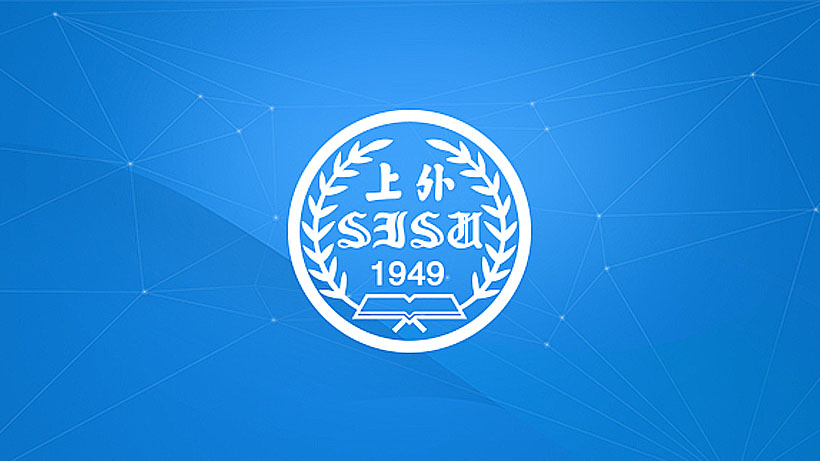
胡德平
上海体育学院马克思主义学院常务副校长、副教授
新闻报道


上海体育学院马克思主义学院常务副校长、副教授
新闻报道

上海外国语大学马克思主义学院教授
新闻报道

李媛,教授、博士生导师,德国洪堡学者。现任浙江大学外国语言文化与国际交流学院副院长、德国学研究所所长;教育部外国语言文学类专业教学指导委员会德语分委员会委员、全国德语教师发展中心负责人、教育部中学德语课程标准制订组专家。主要研究领域为德语语言学与应用语言学、跨文化与德国问题研究。曾主持和参与近30项课题,《德语C1-C5》系列教材总主编、《国际组织与全球治理》丛书总主编、《Zielsprache Deutsch》、《Literaturstraße》等期刊编委。出版专著5部、编著5部、译著9部,参与或主编教材10部,在国内外重要学术期刊上发表论文70余篇,其中被SSCI/A&HCI收录18篇。获国家级精品教材、浙江省十二五规划优秀教材,浙江省青年社科优秀成果二等奖, 浙江省高等教育教学成果奖二等奖,浙江省第一届高校教师教学创新大赛“课程思政”微课专项大赛,浙江大学优秀教学成果奖一等奖,浙江大学第一届高校教师教学创新大赛“课程思政”微课专项赛特等奖等奖项。
新闻报道

姜毅,中国社科院俄罗斯东欧中亚研究所研究员。
新闻报道

刘鸿武,教育部学者特聘教授,浙江师范大学非洲研究院院长,中国亚非学会副会长,商务部经贸政策咨询委员会国际投资专家,从事非洲研究工作20多年,遍访非洲东西南北20多个国家。2007年作为浙江省“钱江高级人才”特聘教授,带领其博士生团队引进到浙江省,组建了非洲研究院。他是国际关系专业、世界史专业双专业博士生导师,已培养了40多名非洲研究的博士硕士和留学生。他担任达沃斯世界经济论坛非洲议程理事会理事、外交部中非联合研究交流计划指导委员会委员、中国非洲问题研究会副会长、中国非洲史研究会副会长、中国非洲人民友好协会理事,兼任外交学院兼职教授、云南大学非洲研究中心主任。2009年因在非洲研究领域的突出贡献,荣获中非人民友好协会授予的“中非友好贡献奖”,当选“感动非洲的十位中国人”。他著述丰硕,影响广泛,在中国社会科学出版社、人民出版社、世界知识出版社出版《非洲文化与当代发展》、《非洲文化与当代发展》、《苏丹》、《蔚蓝色的非洲》、《达尔富尔问题多维透视》、《尼日利亚国家发展史纲》、《黑非洲文化研究》、《中非发展合作:理论、战略与政策研究》等专著教材27部,发表论文100多篇,主持完成多项国家级课题,获多项国家级教学科研成果奖。
新闻报道

刘鸿武,教育部学者特聘教授,浙江师范大学非洲研究院院长,中国亚非学会副会长,商务部经贸政策咨询委员会国际投资专家,从事非洲研究工作20多年,遍访非洲东西南北20多个国家。2007年作为浙江省“钱江高级人才”特聘教授,带领其博士生团队引进到浙江省,组建了非洲研究院。他是国际关系专业、世界史专业双专业博士生导师,已培养了40多名非洲研究的博士硕士和留学生。他担任达沃斯世界经济论坛非洲议程理事会理事、外交部中非联合研究交流计划指导委员会委员、中国非洲问题研究会副会长、中国非洲史研究会副会长、中国非洲人民友好协会理事,兼任外交学院兼职教授、云南大学非洲研究中心主任。2009年因在非洲研究领域的突出贡献,荣获中非人民友好协会授予的“中非友好贡献奖”,当选“感动非洲的十位中国人”。他著述丰硕,影响广泛,在中国社会科学出版社、人民出版社、世界知识出版社出版《非洲文化与当代发展》、《非洲文化与当代发展》、《苏丹》、《蔚蓝色的非洲》、《达尔富尔问题多维透视》、《尼日利亚国家发展史纲》、《黑非洲文化研究》、《中非发展合作:理论、战略与政策研究》等专著教材27部,发表论文100多篇,主持完成多项国家级课题,获多项国家级教学科研成果奖。
新闻报道

刘鸿武,浙江师范大学非洲研究院创始与现任院长,享受国务院政府特殊津贴专家,教育部长江学者特聘教授,教育部政治学类专业教学指导委员会委员,国家社会科学基金学科规划评审组专家,浙江省特级专家,省政府咨询委员,省特聘教授,早年留学尼日利亚拉各斯大学、坦桑尼亚达累斯萨拉姆大学留学,遍访非洲数十国,培养了一百多名非洲研究博士硕士,创办浙师大非洲研究院、非洲博物馆、中非智库论坛,主持多项国家社科基金重大项目,学术成果和资政报告多次获国家教育部教学成果奖、优秀教材奖、优秀科研成果奖、精品课程奖和国家领导人批示采纳,获“中非友好贡献奖”当选“感动非洲的十位中国人”。
新闻报道

在魁北克近现代历史上,音乐作为当地最为引人注目的文化表现形式之一,始终伴随着社会发展的节奏不断发生变化。本场讲座中,主讲人将透过部分魁北克杰出音乐人的作品,分析现代魁北克社会的演变。在这些音乐人中,不少已经享誉国际舞台。无论你是关注社会的不断演变,还是对法语语言感兴趣,拉波尔迪克(La Bolduc)、菲利克斯•勒克莱尔(Félix Leclerc)、吉尔•维尼奥(Gilles Vigneault)、罗贝尔•沙勒布瓦(Robert Charlebois)、阿尔莫纽(Harmonium)、让•勒卢(Jean Leloup)、席琳•迪翁(Céline Dion)、卢德(Loud)等人都是你应当了解的标志性人物。
Résumé : Pour une large part de son histoire récente, la société québécoise a évolué au rythme d’une de ses manifestations culturelles marquantes, la musique. Le conférencier présentera une analyse personnelle de l’évolution du Québec moderne illustrée par certains des grands interprètes de la chanson québécoise, dont plusieurs ont connu des carrières internationales. La Bolduc, Félix Leclerc, Gilles Vigneault, Robert Charlebois, Harmonium, Jean Leloup, Céline Dion, Loud sont autant de balises utiles aux observateurs d’une société en constante évolution et à ceux qui s’intéressent à la langue française.
孔以恒,魁北克政府驻上海办事处公共政治处主管
2011至2020年底,孔以恒先生担任魁北克省国际关系和法语国家事务部(MRIF)政治和机构事务顾问。任职期间,他在确定魁北克在法语国家组织(包括法语国家组织峰会)内的地位方面发挥了关键作用。2007年至2010年间,孔以恒先生作为魁北克政府驻纽约代表团成员之一,负责魁北克与美国“中大西洋”地区八个州的政治关系事务,而这八个州与魁北克的经济息息相关。同时,他在能源供应、公共安全和环境等事务中也发挥了重要作用。
孔以恒先生在魁北克对外公共事务领域也已有八年工作经历。他在职业生涯中曾接受外派任务,分别于2018年和2019年在巴黎及阿比让任职。
Michel Constantin, chef du Service des affaires politiques et publiques au Bureau du Québec à Shanghai.
De 2011 à la fin 2020, Michel Constantin a été conseiller aux affaires politiques et institutionnelles au Ministère des Relations internationales et de la Francophonie (MRIF) du Québec. À ce titre, il a joué un rôle clef dans la détermination des positions québécoise au sein des instances de la Francophonie, dont les Sommets. Entre 2007 et 2010, à la Délégation générale du Québec à New York, M. Constantin était notamment responsable des relations politiques avec les huit États américains de la région « Mid-Atlantic », vitaux pour l’économie du Québec. Il est ainsi intervenu dans des dossiers comme l’approvisionnement énergétique, la sécurité publique et l’environnement.
M. Constantin a aussi été associé pendant huit ans aux orientations d’affaires publiques du Québec vers l’étranger. Son cheminement a été ponctué d’autres affectations, notamment à Paris en 2018 et à Abidjan en 2019.
新闻报道

当前,人工智能与语言学习融合发展。演讲者将基于技术赋能语言学习的最新研究进展,介绍智能语言生态系统的构建与启示。讲座主要包括数字语言资源设计与开发、教师数字胜任力等内容。
获取更多与本讲座相关的详细信息,敬请关注中国外语战略研究中心公众号“语言与未来”(ID: sisuiol)的微信推送。
金慧教授,上海外国语大学国际教育学院院长,博士生导师,教育学学科点带头人,上海外国语大学教育信息化国际比较研究中心副主任;中国教育发展战略学会未来教育专业委员会理事。研究方向:在线学习、教学设计等。
赵衢,上海外国语大学语言政策与语言教育专业博士研究生,研究方向:语言政策与语言教育。
王陈欣,上海外国语大学语言政策与语言教育专业博士研究生,研究方向:语言政策与语言教育、技术增强的语言学习。
新闻报道

日本韩国越南等东亚国家的汉字一直是社会各界关注的热点。由于日韩越三国分别实行不同的语言政策,其结果是日本书面语中仍大量使用汉字,而韩国汉字消失殆尽,越南彻底废除汉字。但是近年来韩国、越南出现了恢复使用汉字的呼声。根据对日本、韩国、越南现代语言的大规模数据调查,虽然韩国越南基本不使用汉字,但是,这些语言中的汉字词汇并没有受到这些国家限制或者废除汉字的语言政策的影响,仍然大量存在,日本汉字词汇的使用量较明治时期也所增长,汉字词汇就像汉字的种子埋藏在这些国家的语言中。随着社会的进步,原先废除汉字的原因正在逐步消失,只要条件成熟,汉字在这些国家的前途是光明的。
获取更多与本讲座相关的详细信息,敬请关注中国外语战略研究中心公众号“语言与未来”(ID: sisuiol)的微信推送。
上海外国语大学语言研究院教授、博士生导师。历任原解放军外国语学院教授、北京外国语大学北京日本学研究中心教授、博士生导师。主要从事日语语言学、日文信息计算机智能处理、计量文体学、汉字文化圈国家语言文字比较等领域的研究。获多项省部级以上学术奖励。主持和承担10多项国家级和省部级纵向项目。曾任汉日对比语言学研究会第四届理事会会长、第三届理事会副会长兼秘书长、中国日语教学研究会第八届理事会秘书长(2012~2014)。入选2010年度教育部“新世纪优秀人才”支持计划。教育部重大攻关项目“东亚国家语言中汉字词汇使用现状研究”首席专家。
新闻报道